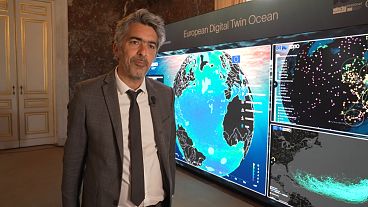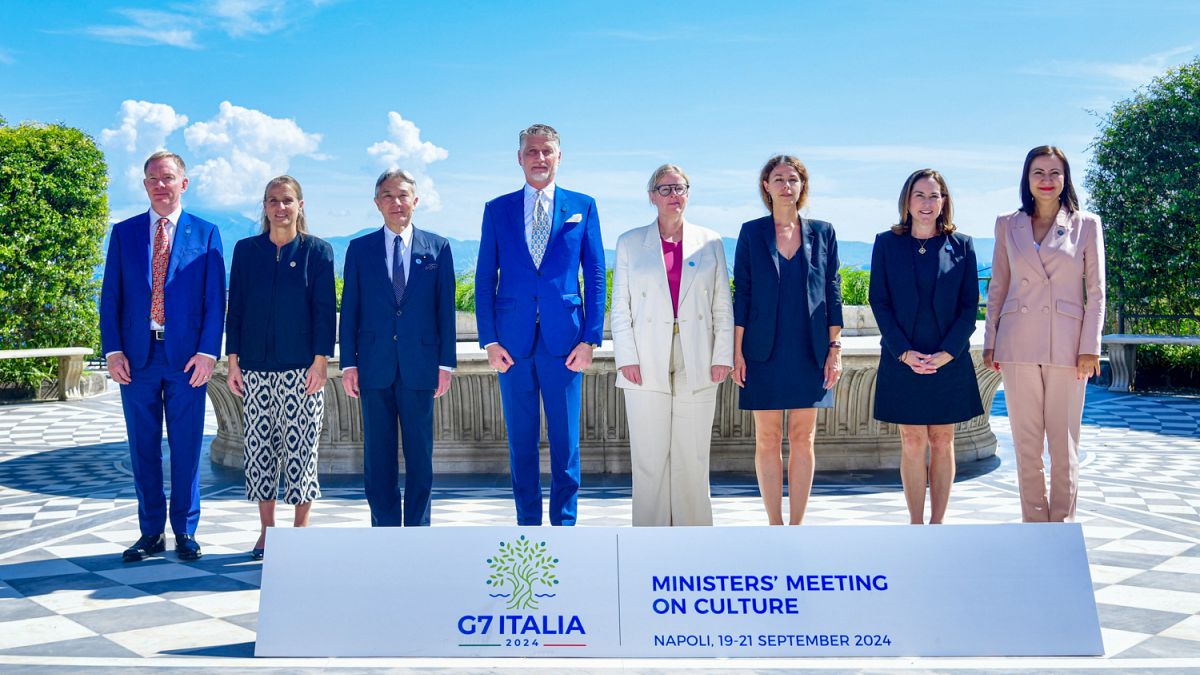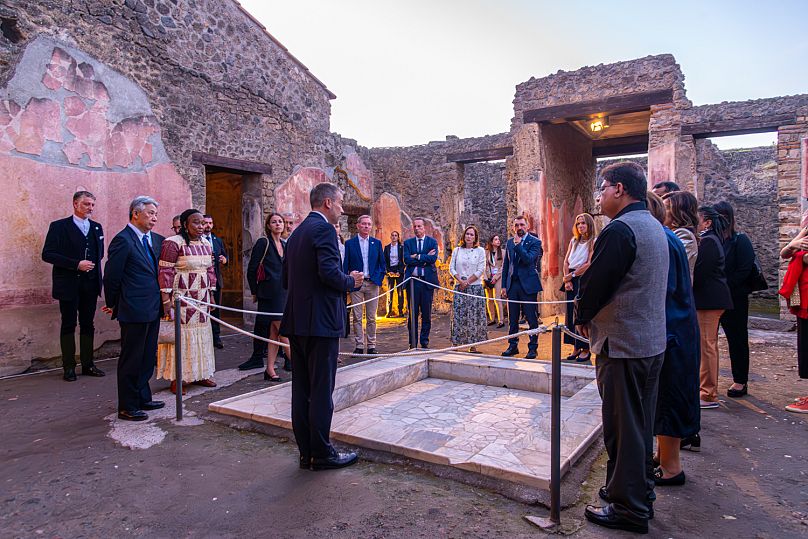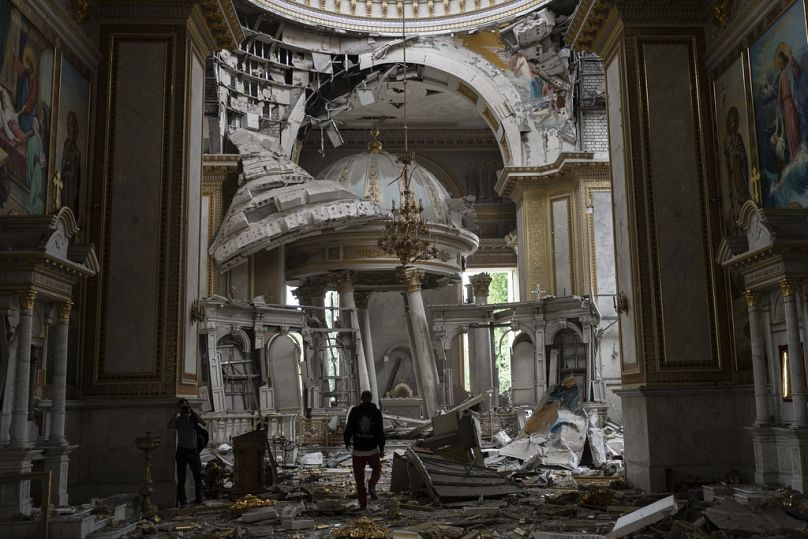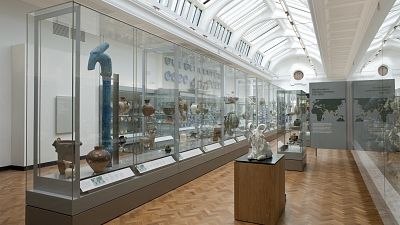The 2024 G7 Culture meeting wrapped up in Italy on Saturday. Among the key themes of the ministers’ concluding declaration were restoration in Ukraine, the opportunities and dangers posed by AI, and the protection of freedom of expression.
Last week, G7 culture ministers – from Canada, France, Germany, Italy, Japan, the UK and US – met in Naples to discuss challenges in the fields of culture and creativity.
Freedom of expression was high on the agenda, with the ministers laying out their commitment to protect this fundamental principle in their final declaration.
“We will foster and protect freedom of expression, including the freedom of artists and journalists to create and express their views without interference, as well as the plurality, independence and sustainability of the media,” the eight-page document reads.
This includes, the declaration continues, fostering “respect for dissenting opinions in democratic debate” and “countering any attempts to censor, marginalise or erase cultural opinions and expressions".
Amidst ongoing cultural destruction in Ukraine, the ministers also committed to aiding Ukraine in repairing the damage to its cultural heritage caused by Russia’s invasion.
“We firmly condemn Russia’s full-scale aggression against Ukraine and the widespread destruction of historic sites and cultural institutions,” they said, highlighting damage to “museums, theatres, libraries, archives, churches and other places of worship, threatening Ukrainian cultural identity”.
In the face of this destruction, the ministers pledged to “stand united in defending and promoting the resilience and regeneration of Ukrainian culture and cultural heritage, tangible and intangible”.
The leaders additionally agreed to work together to address the ethical, legal, economic, and social implications of AI for the cultural and creative industries.
“We will exchange ideas on policy approaches related to developing and deploying AI in a safe, secure and trustworthy manner and on improving the regulatory landscape and governance approaches to promote the social and economic value of human creativity and labour,” they said.
Beyond the concluding declaration, an additional document centred on culture as a key driver of sustainable development in Africa.
“We will foster reciprocal knowledge sharing [...] to support efforts to boost cultural and creative sectors and industries; protect cultural property from illicit trafficking; promote, safeguard and sustainably manage cultural heritage and increase the presence of Africa in the UNESCO tangible and intangible heritage lists,” the G7 culture ministers, alongside other stakeholders, committed.
UNESCO, the educational, scientific and cultural arm of the United Nations, praised the leaders’ pledges.
“The adoption of the G7 Declaration is a clear commitment to culture by the world leaders. Cultural rights must be protected, asserted, and promoted at the highest level of policy and decision-making,” Ernesto Ottone R., Assistant Director-General for Culture of UNESCO, said.
Read the full declaration here.



